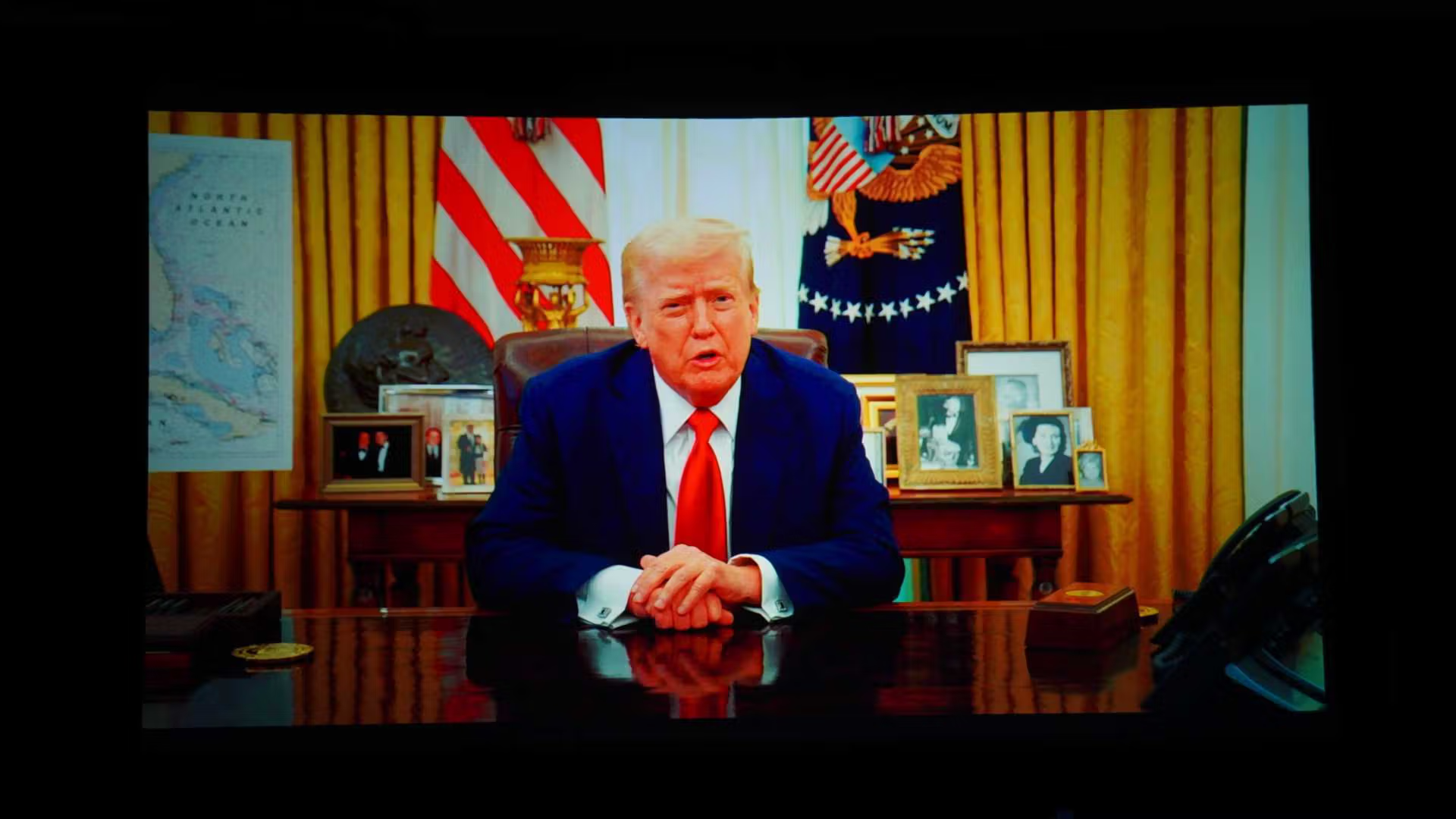5 Ways Trump Tariffs Impact Bitcoin, Ethereum & More

Exploring the Impact of Trump Tariffs on Crypto
The recent announcement of heavy tariffs by the Trump administration has sparked significant effects on the cryptocurrency market. As traders navigate this new landscape, fluctuations in major coins like Bitcoin and Ethereum have raised questions about future stability and opportunities.

Understanding the Impact of Trump Tariffs on Crypto
The impact of Trump tariffs on crypto is becoming increasingly significant in today’s economic climate. Tariffs have historically been used as a tool for trade negotiations, and their recent reintroduction has raised concerns across various sectors, including digital currencies. Heavy tariffs, particularly those imposed on China and the automotive industry, have aggravated economic uncertainties that ripple through global markets. In the past, similar situations led to heightened inflation, altering consumer behaviors and investment strategies.
For the cryptocurrency sector, the effects can be profound. As the price of Bitcoin dipped sharply from $88,500 to around $82,000 following the announcement of new tariffs, traders are closely monitoring the evolving landscape. This volatility shows how the impact of Trump tariffs on crypto can shake investor confidence, causing a migration towards more traditional safe-haven assets like gold.
Moreover, a prolonged trade war may tether crypto prices to broader economic shifts. Bitcoin, often viewed as digital gold, could see renewed interest if tariffs escalate inflation concerns, further emphasizing the importance of understanding how global trade policies shape the cryptocurrency market.

Understanding the Impact of Trump Tariffs on Crypto Markets
The impact of Trump tariffs on crypto has given rise to significant volatility in the market, shaping trader strategies and market dynamics. Recent tariffs, which have surged to 34% on China and 25% on cars, are primarily designed to curb imports but have inadvertently influenced digital currencies. Major cryptocurrencies like Bitcoin and Ethereum experienced sharp declines, with Bitcoin dropping from $88,500 to around $82,000 shortly after the announcements. According to analysts, these movements indicate that traders are bracing for more market fluctuations.
Short-Term Market Reaction
“Trump’s tariffs that rolled out on April 2, 2025, are stirring up the crypto industry in a big way. The reaction was immediate, with Bitcoin flirting with the $90K level before plummeting,” explains market analyst Jenna Lee. In response to the heightened uncertainty, many investors are turning to traditional safe havens, such as gold, while institutional investors are accumulating Bitcoin. A recent JPMorgan survey highlights this sentiment, revealing that 51% of institutional traders view inflation and tariffs as the top market influencers this year.
As global trade remains in turmoil, the crypto market is seeing a lack of strong intrinsic narrative, tethered closely to macroeconomic trends. The impact of Trump tariffs on crypto is expected to persist, perpetuating a risk-off sentiment among investors.
Long-Term Potential for Crypto
Despite the immediate turbulence, there’s optimism for the future of cryptocurrencies as a hedge against inflation. With rising import prices due to tariffs, Bitcoin could gain renewed attention as a potential alternative store of value. Moreover, the growing adoption of stablecoins could facilitate cross-border transactions, further enhancing crypto’s utility in a fractured global economy.
In conclusion, while the short-term outlook may remain shaky, the long-term impact of Trump’s tariffs could benefit the crypto market as it looks to redefine its position amidst shifting economic landscapes.
Analysis of the Impact of Trump Tariffs on Crypto
The recent implementation of Trump tariffs has significant implications for the cryptocurrency market, particularly for assets like Bitcoin (BTC), Ethereum (ETH), and others. With tariffs reaching 34% on imports from China and 25% on automobiles, the immediate reaction has led to market volatility, showcasing the impact of Trump tariffs on crypto as investors respond by selling off risk assets. As economic conditions become uncertain, traders are inclined to seek safer investments, causing a temporary dip in crypto prices.
However, this upheaval may offer long-term opportunities. As the tariffs push the U.S. dollar’s strength, cryptocurrencies could emerge as vital hedges against inflation. Analysts suggest that the trade war might strengthen Bitcoin’s narrative as ‘digital gold,’ countering traditional currency fluctuations. Market participants are noted for their cautious approach, with many expecting a sideways market in the short term, but bullish sentiment prevailing as the macroeconomic landscape evolves. Ultimately, the longer-term vision for cryptocurrencies remains optimistic, potentially positioning them favorably in a shifting economic landscape influenced by ongoing tariff policies.
Read the full article here: What’s Next for BTC, ETH, SOL, ADA, XRP After Trump Tariffs? Here’s How Traders Playing the Dip









